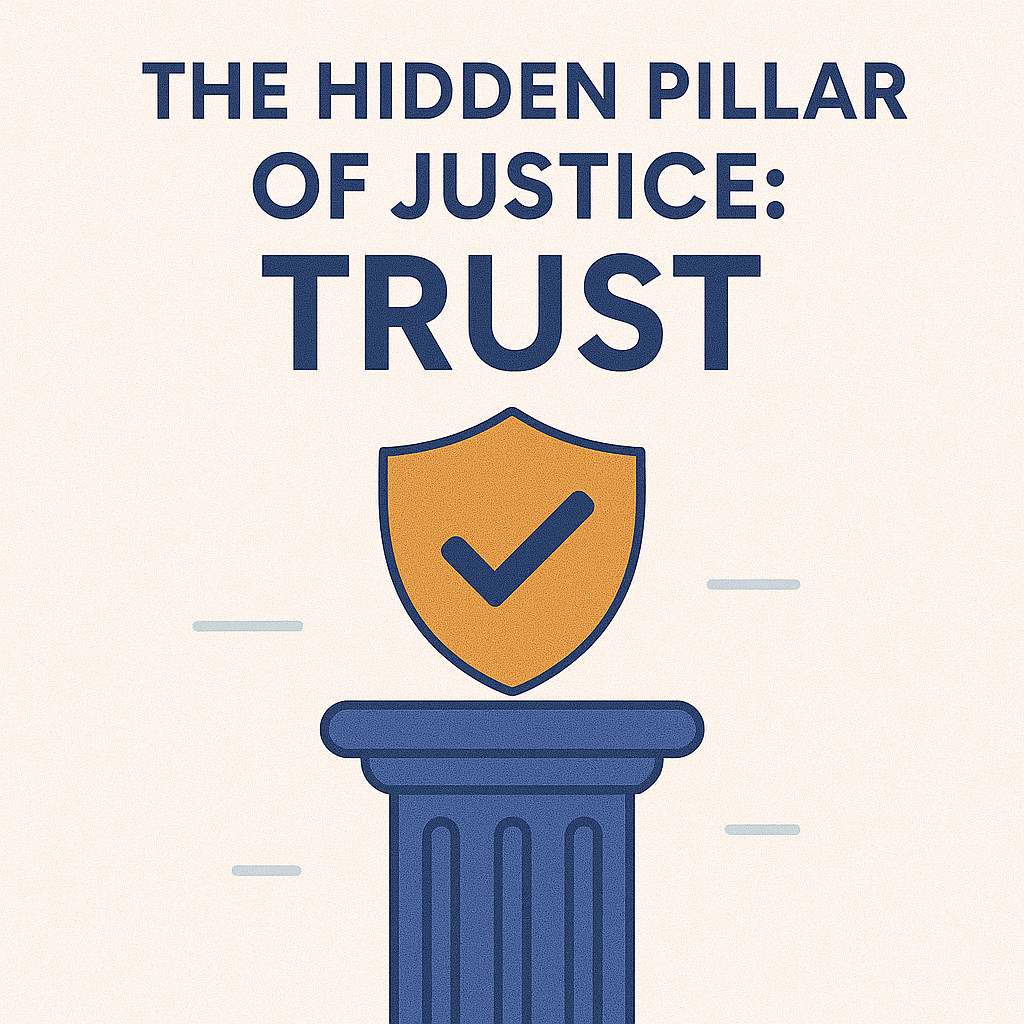Justice and Trust: Why Confidence in Systems Matters
“Trust is the glue of life. It’s the most essential ingredient in effective communication. It’s the foundational principle that holds all relationships.” — Stephen R. Covey
Justice isn’t only about rules, courts, or institutions — it is about people believing in them. Systems cannot function without the confidence of those they serve. Trust is what gives laws legitimacy, rulings weight, and reforms meaning. Without it, justice becomes fragile.
Why Trust Is the Foundation of Justice
At its core, justice is a social contract. Communities agree to abide by laws and institutions in exchange for fairness, safety, and accountability. But if people lose faith that systems will treat them fairly, that contract begins to unravel.
Trust acts as the foundation on which justice is built. It allows individuals to accept outcomes — even difficult ones — because they believe the process is honest, impartial, and transparent. Without trust, even the most well-designed system struggles to maintain legitimacy.
The Cost of Broken Confidence
When trust fades, skepticism rises. People may begin to disengage, withdrawing from civic participation. Others may reject decisions outright, questioning the authority of institutions.
A justice system without trust risks alienating the very people it is meant to serve. The consequences are profound: reduced cooperation, increased conflict, and a widening gap between communities and institutions.
Building Confidence Through Transparency and Accountability
Trust is not given — it is earned. Systems that are open about their processes and willing to accept accountability are more likely to gain public confidence.
- Transparency reassures people that nothing is hidden.
- Accountability demonstrates that mistakes are acknowledged and corrected.
Together, they send a clear message: justice is not just about outcomes but about fairness in how those outcomes are reached.
Fairness as the Bridge to Trust
At the heart of confidence is fairness. People may not always agree with every outcome, but if they see fairness applied consistently, they are more likely to trust the system.
Fairness doesn’t mean perfection. It means equal treatment, impartiality, and respect for the rights of all. Systems that embody these values earn the confidence of their communities over time.
A Shared Responsibility
Building trust is not only the duty of institutions — it is also a shared responsibility. Communities must engage, ask questions, and participate in dialogue. Journalists, educators, and advocates play a role in highlighting both successes and failures, ensuring that the full picture is seen.
When trust is built collectively, it is stronger, more resilient, and less likely to fracture under pressure.
Conclusion
Justice cannot thrive without trust. Confidence in systems is what allows people to accept decisions, believe in fairness, and remain engaged in civic life. Without it, even the strongest laws and institutions can falter.
At Frame Journalism, we believe shining a light on stories is one way to rebuild that confidence. By presenting events with clarity and context, we help audiences see not just the outcomes but the processes behind them. Because only when people trust in justice can justice truly serve the people.

Leave a Reply